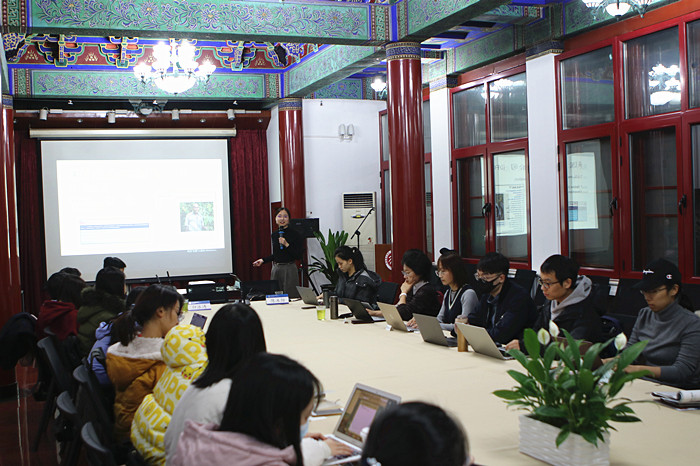On the evening of November 27th, 2020, the Institute of International and Strategic Studies (IISS), Peking University (PKU) held the 45th seminar of "North Pavilion Dialogue" lecture series. Chen Muyang, Assistant Professor of the School of International Studies (SIS), PKU, gave a lecture entitled “China, the United States, and the Global Development Order”. The lecture was presided over by Gui Yongtao, Vice President of IISS and SIS, PKU.

The lecture focused on the field of international development and discussed how China affects global development and whether China's rise will bring competition in this field. China's Belt and Road Initiative (BRI) has largely affected the rest of the world, especially the less developed regions. In response to China's rise as a major development finance provider, the U.S. passed the Better Utilization of Investment Leading to Development (or BUILD Act) in 2018 and established the U.S. International Development Finance Corporation (DFC) to enhance its influence in development finance. Does this imply a rivalry between a "state-led" China model and a "market-led" U.S. model in the field of international development? Chen does not think so. She explained her conclusions from the following two aspects.
First, although the DFC emphasizes the role of the market and highlights cooperation with private capital, "market-ness" is not what characterizes traditional development assistance practiced by advanced industrial economies. The postwar international development regime led by the U.S. and other advanced industrial economies emphasized the role of government in the allocation of credits. Its operational logic is to provide government-to-government aid from developed countries to less developed countries on favorable terms through multilateral international institutions such as the World Bank and the OECD. This means of development assistance is characterized in existing literature as being charitable and hierarchical. In contrast, Japan in the immediate postwar decades and southern development partners represented by China practice a more reciprocal means of financing development. While borrower countries provide financial support, their enterprises gain access to business opportunities in the borrowing countries. This means of development finance implemented by latecomer countries was once criticized for being too commercial. But now it is advocated by the advanced industrial economies, which began to call for more commercial capital and private actors to join in development cooperation. This change reflects the “southernization” of the existing international development regime.
Secondly, there is no significant competition between China and advanced industrial economies in the field of international development due to different preferences and market choices of their firms. Figures from Japan Bank for International Cooperation, for example, show that its capital usually flows into regions with relatively higher income, rather than the least developed regions. China mainly focuses on the relatively less developed regions, such as Africa. Research by the U.S. Center for Global Development also points out that the main competitor of DFC is not China, but other development finance institutions from advanced industrial economies. Such difference also leads us to think about whether China, India and other southern development partners have unique advantages over developed countries when they are participating in development projects in less developed regions.
In the Q&A session, Chen discussed with faculty members and students on risk control in development financing, competition between China and the U.S. in other fields, overseas business of state-owned enterprises, and the application of the analytical framework in regions such as Eastern Europe. (contributed by Pan Yichen)
Editors: Li Fangqi, Zeng Chuyuan Photographer: Zheng Peijie

